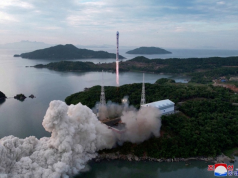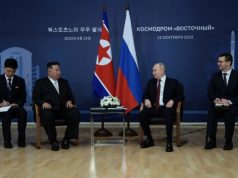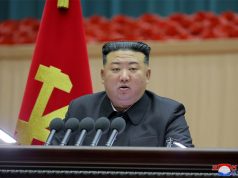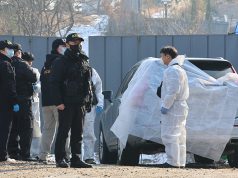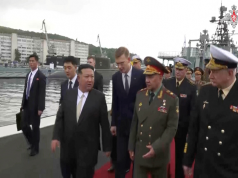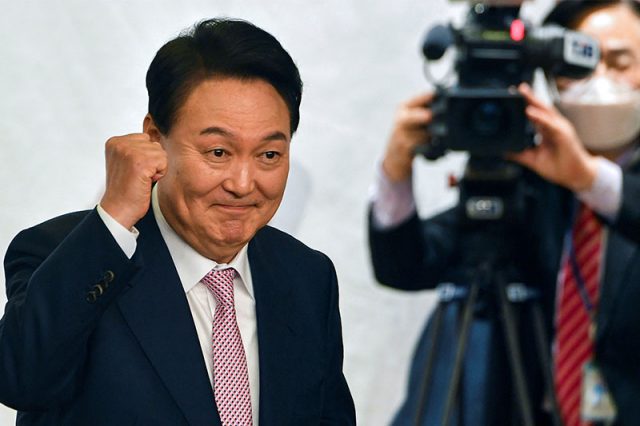
SEOUL — Park Yong-man says his hopes of ever restarting his clothing factory at the inter-Korean economic complex in Kaesong, North Korea, appear “beyond impossible” with the election of conservative Yoon Suk-yeol as South Korea’s president.
The project, which housed some 124 South Korean companies and employed 55,000 North Korean workers, was shuttered in early 2016 following a rocket launch and nuclear test by the North.
Resuming it is among the many efforts at engagement that appear on hold for the foreseeable future amid Pyongyang’s increasingly confrontational moves and Yoon’s vow to take a harder line on the North.
“I wish there is a miracle. But I am afraid under the Yoon government, South-North Korea relations will only get worse, even to a level where there will be provocative acts and exchanges,” said Park. His Rok-Sec Garments now makes a sixth of what it used to in Kaesong, he said, without providing exact amounts.
Yoon’s victory may be a nail in the coffin for outgoing President Moon Jae-in’s policy of engagement with North Korea, which failed to make meaningful headway throughout his term.
Yoon, a former prosecutor with no foreign policy background, has pledged a muscular military strategy and said pre-emptive strikes may be the only ways to counter an imminent launch by North Korea’s new hypersonic missiles.
The president-elect’s team said he will seek to restart talks with North Korea, but on the condition that it takes concrete actions to denuclearize.
They also call for boosting military deterrence including by strengthening ties with Washington.
“I will sternly respond to North Korea’s illegal and unreasonable acts according to principles but always leave the door open for South-North dialogue,” Yoon said in his first public policy speech as president-elect on Thursday.
Yoon’s presidency may see more heated rhetoric, but analysts and campaign aides say North Korea already appears set on a course toward escalation, at least in the short term, regardless of who occupies the South’s presidential Blue House.
North Korea tested a record number of missiles in January, has suggested it could resume testing of nuclear bombs or intercontinental ballistic missiles (ICBMs), and appears to be preparing to launch a spy satellite.
International monitors have also reported activity at North Korea’s main nuclear reactor and test site.
“I expect North Korea to raise tensions more, soon, and sufficiently for Yoon to not even be able to pay lip service to the notion of engagement,” said Christopher Green, a Korea specialist at Leiden University in the Netherlands.
The United States says it is willing to talk without preconditions, but North Korea says such overtures are insincere as long as Washington and Seoul maintain “hostile policies” such as military drills, arms build-ups, and sanctions.
North Korea wants to be recognized as a nuclear-armed state, and is heading towards achieving that goal, said Park Won-gon, a North Korea studies professor at Ewha Womans University in Seoul.
“For now, North Korea doesn’t want a nuclear deal.”
Inter-Korean peace elusive
In the early months of his term, Moon faced some of the highest levels of tension since the 1950-1953 Korean War, before North Korean leader Kim Jong Un abruptly declared his nuclear force complete and launched a diplomat offensive that led to unprecedented U.S.-North Korea detente.
Since the breakdown of a summit in Hanoi between Kim and then-U.S. President Donald Trump, however, Moon saw prospects of lasting peace slipping, dashing the hopes of many who had invested in the promise of cross-border cooperation.
North Korea became increasingly frustrated with Moon’s inability to persuade his American allies to ease sanctions enough to allow some economic cooperation.
The United States has said no sanctions relief would happen without at least some steps by North Korea to give up or limit its nuclear and missile arsenals.
“Restarting Kaesong? That’s beyond impossible,” Park said, sitting in an empty office with an old picture of his Kaesong factory placed in a corner.
“We want to make a fresh start. The chapter of Kaesong in history needs closure.”
Engagement with Pyongyang is unlikely to be high on the agenda for Yoon.
He faces pressure at home over soaring housing prices, deepening inequality and a generation of highly educated young voters with not enough good jobs.
“We should ask whether the South Korean public would be supportive of inter-Korean economic project, which would likely entail greater economic burdens on the South than the North,” said Soo Kim, formerly a CIA analyst focusing on North Korea and now with the U.S. think tank RAND Corporation.
($1 = 1,231.6600 won)
—Reporting by Ju-min Park; additional reporting by Hyonhee Shin; Editing by Josh Smith and Lincoln Feast.




